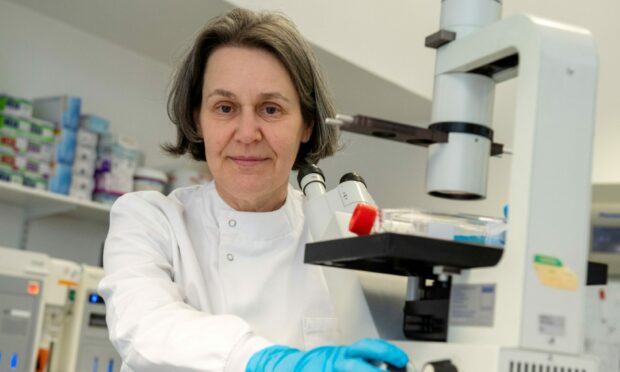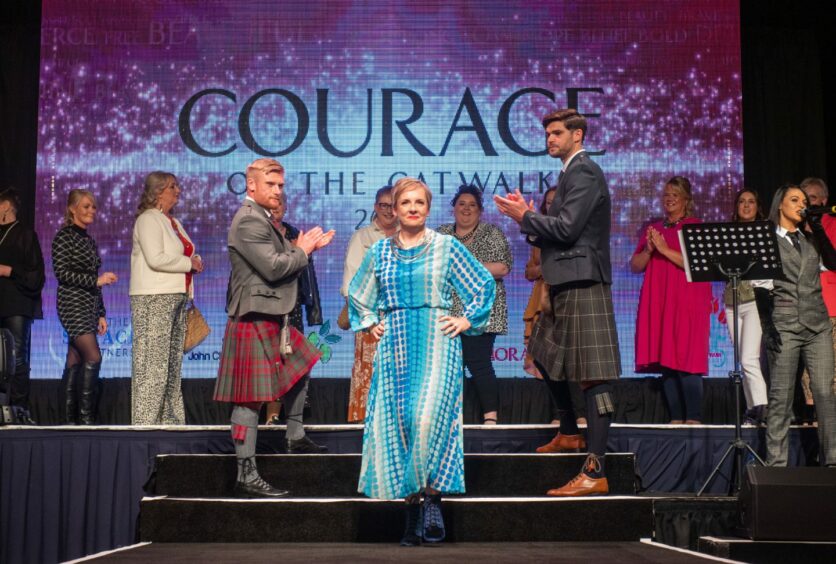It has been a busy 18 months for Aberdeen University’s new clinical chair in oncology.
After moving north from Oxford, Professor Anne Kiltie has thrown herself into her job, seizing the new opportunities it has given her.
In particular, she believes Aberdeen University’s “can do” mentality has assisted in applying for grants, opening up further doors to research possibilities than in Oxford.
She has also been impressed with Friends of Anchor, and the “amazing” support the charity attracts locally.
Prof Kiltie took up her role as the Friends of Anchor clinical chair in oncology at Aberdeen University in June 2021 after 12 years at Oxford University’s department of oncology.
At the famous institution, which was recently ranked by Times Higher Education as the best university in the world, she obtained her Doctor of Science and personal chair, which is a professorship awarded in recognition of academic achievement.
But despite its acclaim, Prof Kiltie – who studied medicine at Cambridge and Oxford – is thoroughly enjoying her time in Aberdeen.
‘There’s a great ‘can do’ mentality here’
She said: “I was finding in Oxford that I didn’t get much opportunity to do much clinically based translational research, but here there’s a lot more opportunities working with NHS colleagues and setting things up.
“There’s a great ‘can do’ mentality here. I have to say the whole attitude of everybody at all levels is really what impressed me about the University of Aberdeen.”
She believes one of the main differences is the different approach to things like applying for grants with the support of the finance office.
“Here is much, much better I think,” she said. “It’s very collaborative and everybody’s got a kind of can do mentality and are really trying to make it as easy as possible for everybody, so it’s a good atmosphere here.”
Another thing that has impressed her since she moved to the Granite City is the emphasis of “philosophy” on clinical trials, even for non-research clinicians, such as consultants.
“The trials recruitment is very good in Aberdeen, just because it’s part of the culture, that it’s part of your job basically. Whereas other places would be maybe: ‘Oh, we’ve got so much general service work, we can’t have time to do this properly,” she said.
Researching radiotherapy options for patients with pelvic cancers
There is a “whole cadre” of research nurses that are available for projects and rather than research clinicians having to employ their own, they can “buy time from the team” to take one, with it being costed into the grant.
One of Prof Kiltie’s ongoing research projects is a collaboration with George Ramsey, a senior clinical lecturer at the university’s health services research unit.
They are looking at ways to make radiotherapy work better for older people with pelvic cancers.
The project involves collecting the faeces of 450 people. Research is already under way on the samples of 75 individuals, with another 80 to come as part of this immunotherapy.
Explaining, she said: “We’re testing what the composition of their poo is, because there’s evidence from previous studies in other cancer treatments, but not radiotherapy, where what your poo composition is before you start on a treatment can determine how well you do from it.”
‘Amazing’ support locally
Money for such university research comes from national sources and NHS Grampian’s endowment fund, as well as Friends of Anchor’s army of supporters.
The new Anchor Centre will open at Foresterhill in autumn, offering treatment for cancer and blood disorders in modern setting.
Prof Kiltie has been hugely impressed with the north-east’s ability to raise money for cancer research, saying it “knocks the spots off” efforts elsewhere in the country.
Friends of Anchor raises hundreds of thousands of pounds each year through its Courage on the Catwalk and Brave fashion shows, which star men and women who have gone through a cancer diagnosis, or are still receiving treatment.
“It’s just amazing what they do locally,” she said. “The generosity of local people is pretty amazing here.”


